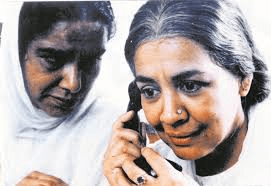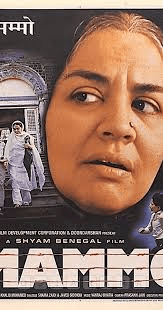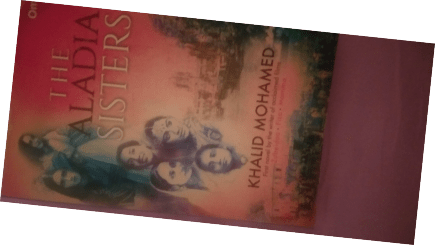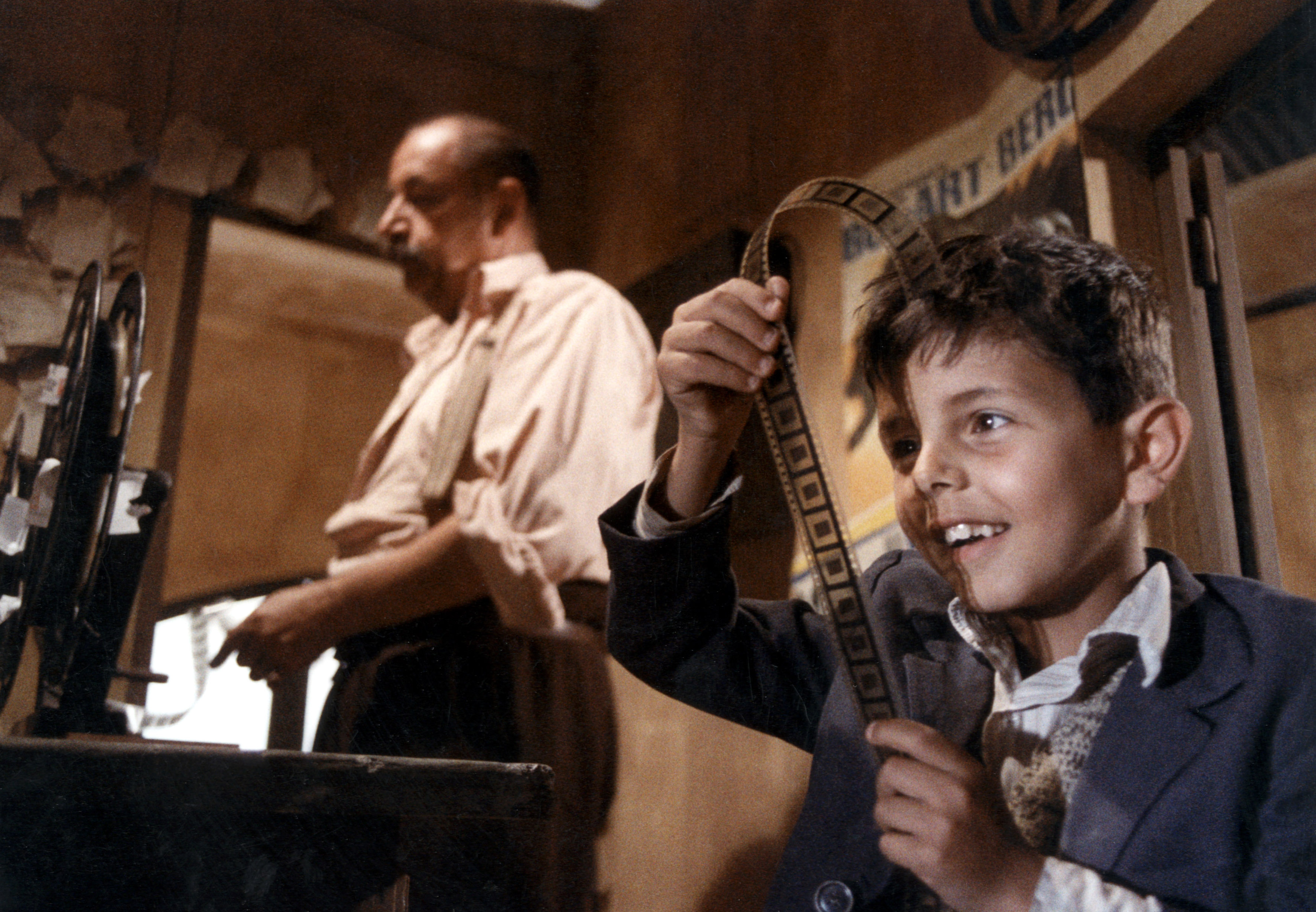The actor Surekha Sikri is not keeping very well these days. I wish her good health and send her love. What better way to do that, than revisit a film in which she has acted? I will not discuss in detail the nuances of her performance, or the character she plays. For actually, the protagonist of the film is very ably played by that other lovely actor – Farida Jalal.
I love both performances equally. But here, I remember the film for Surekha Sikri.
Mammo is an important film. It released in 1994. Often, when we happen to know that a story is based on an event or is about a person from the author’s own life, we label it as autobiographical. In doing so, we deny ourselves the other aspects of the work. Mammo is a story of a woman, Mammo is a story of two nations. For reasons that we can see all around us, Mammo is prophetic.
Just a year before the film is in theatres, blasts have shaken Mumbai forever. Polarisation, Communalism, is beginning, ably aided by neoliberalism which allows the poorest of poor to be deprived of any safety net whatsoever. The 90s’ globalisation has somehow led to decreasing work participation of women. No work, means no income, means no voice. Women’s struggles too are no longer demanding their rights. Mahmooda Begum too is not shouting and fighting for her rights.
Mahmooda is asking, “May I be allowed to stay?”
Right at the beginning, unanswered letters. The film sets very clearly the equation between Mammo and Faiyazi. Mammo is the sister who kept writing the letters even after receiving no repy.
Faiyazi did not reply even after receiving letters repeatedly.
Either a power equation, or that Mammo needs something desperately. We see this from the point of view of Riyaz, now grown-up, obviously a writer. “Mammo Naani wrote so many letters to you, Faiyazi Ma”. The letters stayed unacknowledged. Naani makes excuses – something about ‘small flats’ – for the letters asked whether Mammo could come live with them. The letters told of the ill-treatment meted out to her after the death of her husband.
“Tumhaare naana leke gaye mujhe“, Mammo naani tells her grandson. The circumstances in which she left for Pakistan – not forced, not fleeing, but for love.
In a shared traumatic experience that the two peoples, if we may call ourselves that on either side of the border, went through, but out of a personal choice. Not like the ‘abducted women’ (of The Abducted Persons Bill 1949). The women who were abducted and then ‘restored’. Nicely divided between the two nations.
Properly following all the terms of the treaty between the two nations that did not agree to anything else except the ‘rightful’ ‘restoration’ to the ‘community’ of its women.
However, “saare apnon se chhudha liya tha mujhe” – he separated me from all my people. This is rendered with a smile that has fondness for the love, but also states the reason for her wanting to come back to India – her people, her apne, are here. ‘Wanting to come BACK” – BACK is the operative word here. This brings to mind the fundamental premise of citizenship. At the time of partition, it was thought that the premise would emphasise choice. That citizenship would be inclusive. “Open to those who made a choice to stay here, but also open to those who left, but want to come back.” Even then, there were some concerns felt by the then interim government. Only about this part – those who left by choice but now wanted to come back.
These concerns, seem to have been resurrected around CAA. But back to the story of this sweet old lady who speaks not of laws , but of intangibles like the earth(the mud) of her land, the smell of this earth..
“Meri umar ke ho jaaoge toh samjhoge ke apne watan ki mitti ki khushboo kya hoti hai“
Does mitti allude to the mitti put on the body during burial, I wonder, and therefore will be understood at an advanced age with the impending reality of death.
Every little action of hers as she negotiates, speaks of her need to integrate. That this means adopting the mannerisms of the majority community is one of the failures of a country that had started out wanting to be secular.
e.g. Scene in the police station –
First meeting with Inspector Apte (played by Sandeep Kulkarni)
Three greetings
Mammo (smiling): Namaste officer saaheb.
Then, to Riyaz: aadab karo sahib ko.
To the police officer, almost as if trying to ingratiate herself, to ‘fit in’, The Hindu greeting: Namaste
To Riyaz, inculcating the Muslim ways, grace: Aadaab
And what does the boy say? Neither Aadaab, nor Namaste, this boy studying in a Christian school, having a Hindu for a best friend, watching American movies on the sly, Riyaz: Hello.
Three Stories
1.
Mammo recounts how she went to the border “doosre mohajiron ke saath“, with the other fleeing refugees.
“Kya zamaana tha. Qayamat thi Qayamat.” It was as if the day of reckoning, says Mammo
It was indeed a day of reckoning. There would be questions asked. Only nobody could hear them.
“Khoon, lootmaar, lashein“. She is talking to a little boy, her grandson, so Mammo does not describe the rapes.
But yes, she speaks of a woman. A woman who was walking in the same group. She carried her two children. Perhaps a disease, perhaps the malnutrition and stress of walking, one of the infants died. Quick decisions had to be made in such a situation. While passing a river, the others in the group tell her to throw the dead body into the water. Tired, displaced and disoriented, “uss aurat ne zinda bachche ko paani mein fenk diya, aur laash apne seene se lagaakar chalti rahi” – the woman threw the infant who was alive into the water, and kept walking, having clutched the dead body to her chest.
2.
The story of Garam Hawa. The director quotes a film inside this one. It is introduced with humour –
Riyaz: Partition ke baare mein hai film. Teen ticktein laaon?
Mammo naani: Fizzi (referring to Faiyazi) chalegi?
Riyaz (tongue in cheek): Mammo naani, serious film hai.
We smile, only to discover that it is indeed, a serious film. The scene chosen is of the old lady character being brought back to her old house for one last time. “Amma jaan, dekho hum aa gaye purani haveli mein.” And here, in the audience, Mammo exclaims “Ya Rab. Lagta hai meri hi kahaani banayi hai.“
We look at the crying faces of Mammo naani and Faiyazi Ma.
The two sisters cry for the character, but we know that their tears are also for their own lost childhood haveli in Panipat. Mammo has been displaced, yes, and history has sent her far away from the watan, but Faiyazi has lost a home too.
3.
The story that Rizzu wrote: A woman is taunted by her relatives for being a baanjh – a barren woman. He narrates the story to his best friend. We know he is describing Mammo Naani’s life.
“What is the point of this story?”
Riyaz’s answer is casual, almost trite, “The point is that everyone returns to their roots.”
The child’s pleading, even angry eyes tell us that it is anything but, or that and much much more – it is about an entire life, about a moment in the life of two nations, and above all, it is about Mammo Naani!
The Birthday party incident – Mammo cannot keep out of others’ business. She keeps doing what she thinks is good for the person. This time, she plans a surprise birthday party for Riyaz. Unlike the feigned surprise expressed at such parties, Riyaz is truly surprised. For he’s never invited friends home before.
“Woh hum jaise nahin“, he says, showing us how even the boy who fits into quite comfortably in the public space of the school, knows that the private space of the minority community life is different. Different not only from others, but different from that which is considered mainstream. Mammo is more relaxed about it, “but they had such great food.” “They will laugh as soon as they go out from here”, screams Riyaz. Because he is hurt, because it is her fault, because she meant well, and above all, because there is so much love and pain, there is a big fight.
Riyaz comes out with accusations, criticisms, and worse, states that his grandmother Faiyazi has ‘allowed’ her to stay here, “tum mehmaan ho iss ghar ki“, and Mammo has taken advantage of this kindness and has gone too far.
Mammo is, as if, kicked out of her marital home all over again.
“Jinka apna ghar nahin hota, unka koi ghar nahin hota.“
When the doors of her home were closed on her, back in Pakistan, Mammo had spent some days in a dargah. Faiyazi remembers this. The search begins. The refuge of the homeless. Homeless and distressed. Across religions – at one dargah, we are shown a Hindu woman – a woman characterized as a Hindu. Riyaz supports Faiyazi’s frail body in the search. He is trying to make amends for his words. What her husband could not do. What that other family in that other country did not do, this boy wants to do – Bring Mammo back home.
The song picturized over beautiful old heritage Dargahs in Mumbai – beautiful old heritage dargahs whose steps lead down to residential areas clearly marked Muslim, clearly marked poor, clearly SEPARATE. Even in the country she wants to belong to, there is no real equality. Here too, she, as a member of the minority community, will be inferior. Yes, the members of the community Mammo belongs to, do have formal citizenship, but can they ever hope for a substantive citizenship based on equality? Mammo’s struggle, even if it becomes successful, cannot even hope for this substantive citizenship. There are too many inequalities.
Na Jaane kaunsi matti watan ki matti thi
Nazar mein dhool, jigar mein liye gubaar chale
And
Yeh kaisi sarhade uljhi hui hai pairon me
Hum apne ghar ki taraf uthkar baar baar chale
Restored home safely, Mammo is looking at the fish in the home aquarium, “yeh machchliyaan kitni mehfooz hain apne ghar mein. Inhe yahaan se koi nahi nikaal sakta.” When she had first arrived, she had suggested that they be left loose into the sea. To allow them to live a free life. Now the same aquarium represents safety and permanence. Even the desire of personal liberty is secondary to the need for CITIZENSHIP. For good. Forever.
When the tout/agent at the Police Station (played by Kishore Kadam) asks “ab aur kitne din rehne waali hain?“, Mammo’s answer is “bas jitney din reh gaye hain“
Why is it so? Is it because of her age? That wherever she has lived, she wants to come home to die? And why the citizenship of a particular place? Her husband’s country? No. Her Father’s land? No. But
“Yeh MERA watan hai“
She has now gone to a restaurant to meet the policeman. This meeting has been arranged by a tout. This scene, one can correlate to what is called ‘A different relationship being sought with law’. The marginalised in search for what calls ‘Citizenship outside the domain of the state’.
The two-faced nature of this process of the illegal means to get a legal document is reflected in the face of our protagonist.Confidence when she says this. “Yeh MERA watan hai“.
Vulnerability when she removes a ring off her finger and hands it over as baksheesh/bribe/commission.
Police escort-
Riyaz is not at home. “Meranawaaza aake baat karega.” Bravado. A male relative who will come and speak for her. But we know that Riyaz is just a teenager, a child.
A teenage orphan is the only male in the family. There is a heartbreaking kind of fragility in this household – bringing to mind what Roy calls in her lecture, “A certain kind of family”, and ths person the family is trying to shelter. Roy calls it “the awkward person the family is trying to absorb.”
But the family is helpless in face of the face being now applied by the sovereign state and its police arm, “seedhi tarah chalti hai ke hathkadi daalun?“, “yahan Hindustan mein chipke baithi thi?“, asks the police woman. All pleas unheard, the police drag her out of the house. No luggage. No change of clothes. She is not allowed even her burqa. Her sister Faiyazi runs behind the vehicle holding that burqa in her hand. Where is Riyaz? At the tailor’s for a trial fitting. Mammo has bought material and has a master tailor stitching him a Sherwani. “Badhne ki gunjaayish rakhna“, he has been told. A growing child’s dress.
Now this child behaves a lot like a grown-up. He goes looking for Inspector Apte who they have bribed, only to find that the cop has been transferred. So, finding out that the train is leaving from Bombay Central Railway station and “sabhi pakistaani ghuspaithiyonko wahaan leke gaye hain“.
Our dangerous ghuspaithi, the portly, cuddly Mammo has been dragged to the platform.
Now, this woman cop character, the two minutes the film spares for presenting the cops in a good light (the male cop has said “yeh kaisi duty hai yaar“). Veteran feminist Veena Das has describe the behavior of the “social workers and policemen” at the time of ‘restoring of abducted women’. “State was exercising powers of domination and persuasion.” The manner is (pretending to be) what Veena Das calls “non-coercive”.
So in our film, the woman cop says in a sympathetic tone “kaay ko itni khitpit karti hain? Tum apne ghar ko jaa rahi“.
But Mammo’s ghar is here. Her struggle has not been for a passport, but for an understanding, an acceptance by her ‘home people’, the permission to be buried near home.
Mammo says her final line “mera ghar toh yahi hai. Kya mujhe do gaz zameen…?“
That is not the last we see of her! In an epilogue, the adult Riyaz who is now an author answers the doorbell, and there she is – an initially unrecognizable, but remembered and loved Mammo naani. In a comic twist she has declared herself dead, and has stolen across the border – for good. Now nobody will try to look for her. Shyam Benegal the director and Khalid Mohammed the writer give us this joyous end.
In reality, did Mammo cross the border back? In 2019, I read a novel by Khalid Mohammed. The Aladia Sisters is a story of sisterhood that tells the history of a subcontinent. But coming back to Mammo – Is Allahrakhi actually Mammo naani?
In this book –
On page 267, “Allahrakhi Aapa had never let me know what was going on”, Faiyazi ma continued, “then that awful awful news came. When her body was sent for post-mortem, the reporters said there was an evidence of violence and traces of a sedative… I can’t say more child… whether it was…” “I don’t want to hear more.” Says Mammo naani’s grand-nephew. We do not know what really happened to Mammo, on which side of the border. The fate of the women displaced, kicked across the border lost, abducted has always been uncertain – always covered in silence.
But we have left the film at the last scene on the railway platform. Mammo is being almost pushed into the train by the police.
The sight of Mammo, that line she says, “mera ghar toh yahi hai. Kya mujhe do gaz zameen …?” is heartbreaking. As if heartbroken himself, for yes, sometimes characters break a writer’s heart, the writer gives her a solace. A man puts a small child-passenger in her care. This too, is a hurt child, like the one she is leaving behind. “Abhi abhi operation hua hai. Thoda kamjor hai“, says the child’s guardian as he gives her the responsibility of taking this child safely across the border. The woman who came over because she was labelled a baanjh. Mammo naani, without whom, little Rizzu is going to be lost. Riyaz reaches the platform, finds her seat. The train starts leaving the station. They are torn apart by borders. She is not allowed time to even wear her burqa, but she leaves behind her, a boy wearing her gift – his first sherwani. An obviously Muslim boy. Her citizenship is the issue in the film, but for a moment we forget it, at the sight of this boy running after a train.
Can he hope to receive substantive citizenship, of equality?
nadi (Manasee Palshikar) an MBBS doctor, had worked with women from lower socio-economic strata for several years, when she went to The Pune University to do an MA in Gender, Culture and Development,from the Krantijyoti Savitribai Phule Women’s Studies Centre(KSPWSC). She has completed the course in Screenplay writing at the Film and Television Institute of India (FTII), Pune, and then, briefly taught there. nadi’s novel, Sutak was received warmly, and appreciated for its treatment of Gender and Caste.






















